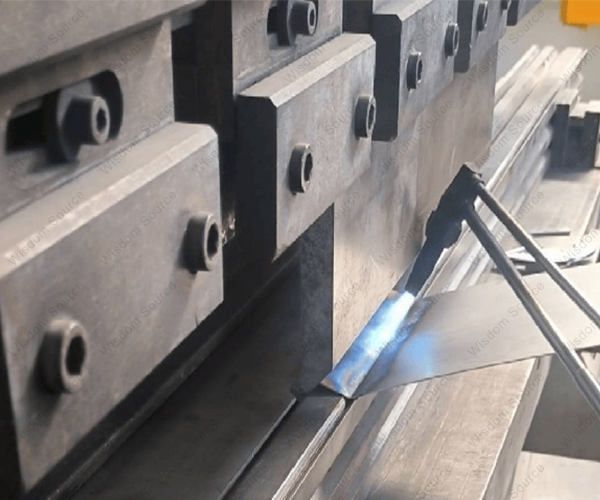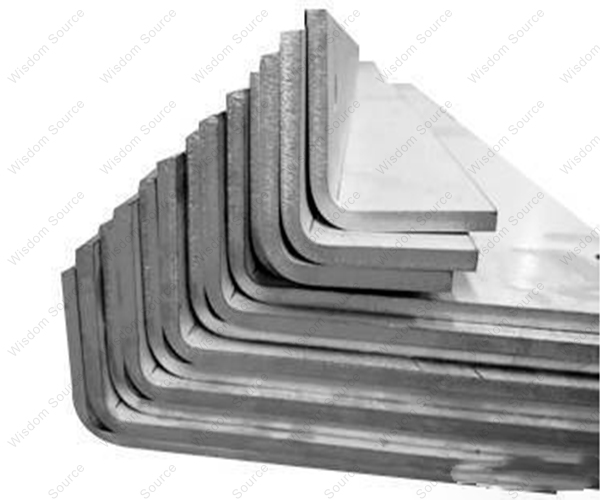TC4(Gr5) Titanium Alloy Bending Parts Processing Core Precautions
TC4(Gr5) Titanium Alloy Bending Parts Processing Core Precautions
TC4(Gr5) titanium alloy (Ti-6Al-4V) has been widely used in many high-end fields such as aerospace and medical care due to its high strength, light weight and excellent corrosion resistance. However, due to its unique material properties, it faces many technological difficulties in the bending process. In order to ensure the processing of high-quality TC4 titanium alloy bending parts, the following core precautions need to be strictly followed. This series of key points has also attracted the attention of Titanium House and was reported in detail.
1. Preheating And Temperature Control: Precise Control To Avoid Hidden Dangers
1) TC4(Gr5) titanium alloy has low plasticity at room temperature. If it is bent in a low temperature environment, it is prone to cracking. Therefore, the workpiece must be preheated before bending, and the preheating temperature must be controlled in the range of 200-400℃.
2) At the same time, pay special attention to avoid local overheating.When the temperature exceeds 500℃, the grains of TC4(Gr5) titanium alloy will become thicker, which in turn leads to a significant decrease in its mechanical properties.In order to achieve the uniformity of heating and grasp the temperature status of the workpiece in real time, an infrared thermometer should be used to closely monitor the temperature of the workpiece. Only by ensuring precise temperature control can a good foundation be laid for subsequent bending processing.

2. Bending Rate And Pressure Control: Low Speed And Slow Pressure, Accurate Compensation
1) TC4(Gr5) titanium alloy has the characteristics of “strain aging”, which means that in the process of rapid bending, it is prone to stress concentration problems.In order to avoid this situation, low-speed bending should be used when bending, and the bending rate usually needs to be controlled at ≤5mm/S.
2) When determining the bending pressure, it is necessary to find the best pressure value through trial folding.If the pressure is too small, the bent workpiece is prone to rebound. Moreover, the rebound rate of TC4(Gr5) titanium alloy is much higher than that of ordinary steel, so 10%-15% compensation needs to be reserved during the processing process. Conversely, if the pressure is too high, it may cause defects such as wrinkling or cracking at the bend, which seriously affects the quality of the bend.
3. Mold And Lubrication Selection: High-Quality Adaptation To Reduce Friction
1) The choice of mold is essential to the machining accuracy of TC4(Gr5) titanium alloy bending parts.Due to the high hardness of TC4(Gr5) titanium alloy, in order to prevent mold wear and deviation in bending accuracy, molds of high-strength materials, such as H13 hot-working die steel, should be selected. The mold of this material has good wear resistance and thermal stability, and can meet the requirements of TC4 (Gr5) titanium alloy bending processing.
2) Before bending, special titanium alloy lubricants, such as molybdenum-based high-temperature lubricants, must also be applied to the contact parts of the workpiece and the mold. Applying lubricant can effectively reduce frictional resistance, prevent scratches on the surface of the workpiece, and avoid adhesion between the mold and the workpiece to ensure the smooth progress of the bending process.

4. Follow-Up Processing And Quality Inspection: Eliminate Stress And Strictly Check
After the bending process is completed, there will be internal stress inside the TC4(Gr5) titanium alloy workpiece.If not eliminated in time, these internal stresses may cause the workpiece to deform during later use.Therefore, stress relief annealing treatment is required, and the workpiece is kept warm at a temperature of 550-600℃ for 1-2 hours to eliminate the internal stress of processing.
Quality inspection is the key link to ensure that TC4(Gr5) titanium alloy bending parts meet the requirements of use. In the testing process, it is necessary to focus on the following aspects:
1) Bending Angle Tolerance
According to GB/T 3621 standard, the bending angle tolerance should be controlled within ±1°. Only if the angle tolerance meets the requirements can the accuracy of the bent parts in the assembly and use process be guaranteed.
2) Surface Defects
Carefully check the surface of the bending part for cracks, depressions and other defects. These defects will not only affect the aesthetics of the bent parts, but may also reduce their mechanical properties and service life.
3) Mechanical Properties
The tensile strength at the bend is tested to ensure that it retains more than 90% of the tensile strength of the substrate. Only when the mechanical properties are up to standard can the bending parts operate stably in various complex working environments.
TC4 (Gr5) titanium alloy bending parts processing is a work with high technical requirements. Only by strictly following the above-mentioned core precautions such as preheating and temperature control, bending rate and pressure control, mold and lubrication selection, and subsequent processing and quality inspection can high-quality TC4 (Gr5) titanium alloy bending parts be processed to meet the needs of aerospace, medical and other fields for high-performance parts.
